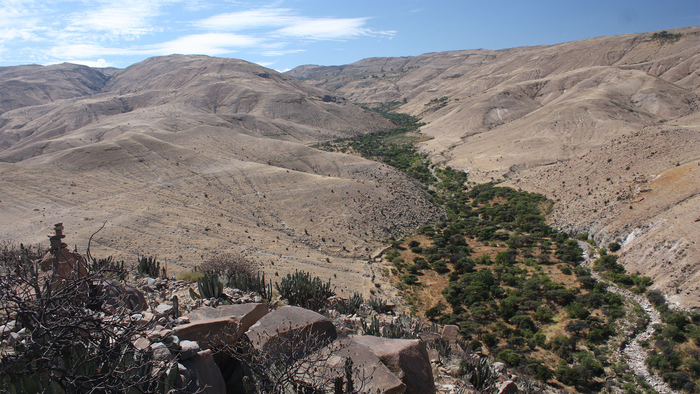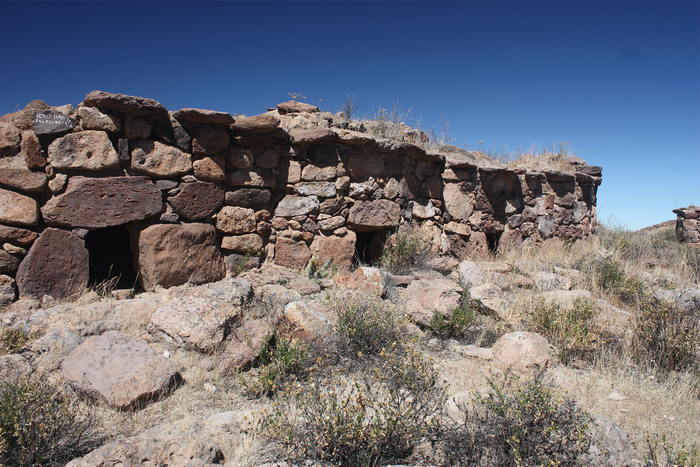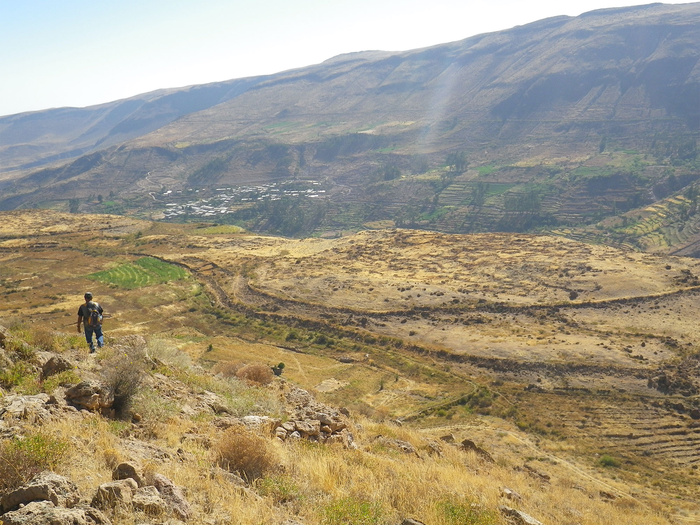Climate change induced refugee crisis, chronic war, in ancient Peru
Together these data characterize the long-term trends of lethal violence, climate and demography over a 700-year window from CE 750 to 1450. During this time, people experienced dramatic climate and demographic change and chronic warfare.
Contrary to many other studies, they found that violence and warfare peaked during an increasingly stable and favorable climate. This was counterintuitive until the authors incorporated demographic change.
“Favorable local climate change improved conditions in the Nasca Highlands. At the same time, neighboring regions were experiencing droughts. People from those areas migrated into the highlands in a population boom, which put substantial pressure on the agricultural economy. Increased competition for limited resources and arable land led to chronic warfare,” McCool said.
The research offers a nuanced approach to examine how past variation in climate and demography led to changes in violence over time.
“Looking back in time allows us to see a greater range of variation than what we can see in recent history,” said Brian Codding, associate professor of anthropology and second author on the study. “This is important because future climate change and population growth will push us outside what we’ve experienced in our collective memory.”
As the threat of anthropogenic climate change looms, researchers are looking to predict how it will impact populations. Many are investigating how populations reacted to past climate changes that were far more dramatic than has been seen in the 20th century. This can provide insight into how people cope, or fail to do so, as climate becomes increasingly volatile in the coming decades.
These findings also add weight to a growing theory that violence and broader social instability is driven, at least partially, by reduced resource availability, which results from interaction between both climatic and demographic dynamics.
The implications of this research are clear—in a globalized world, climate shocks to one region can negatively affect others. “When climate change provokes mass-migrations, even places spared by initial climate impacts may see increases in violence and broader social instability,” McCool said.
Other co-authors on the study include Utah anthropology doctoral students Kenneth B. Vernon and Kurt M. Wilson; Utah anthropology alumnus Peter M. Yaworsky, now postdoctoral researcher at Aarhus University in Denmark; Norbert Marwan at the Potsdam Institute for Climate Impact Research; and Douglas J. Kennett at the University of California Santa Barbara.

Press release from the University of Utah, Lisa Potter.




